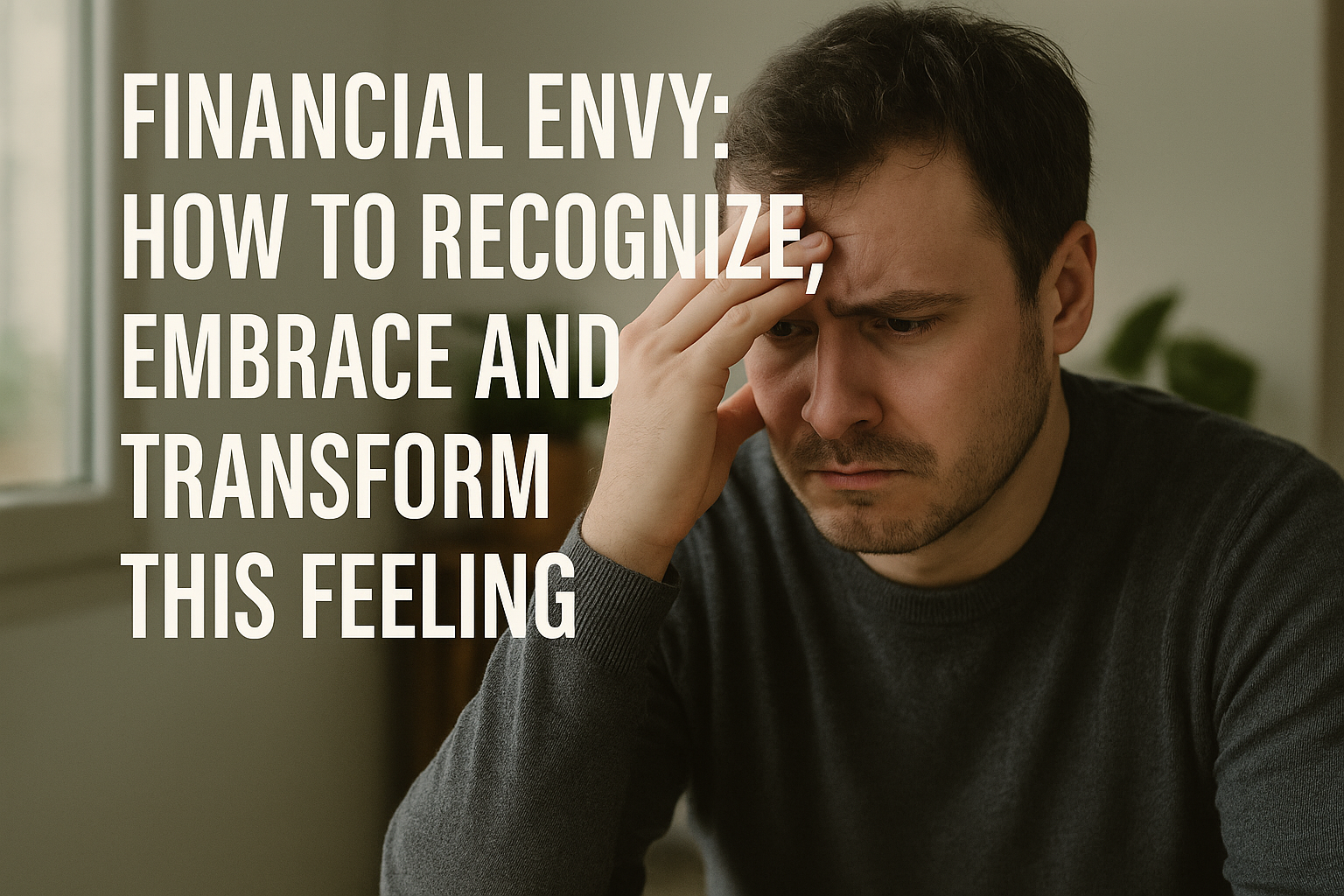Turning a silent struggle into a powerful source of growth
You’re scrolling through your feed when someone posts about buying their dream home. Another shares photos of a luxurious vacation. A third celebrates hitting a six-figure salary before turning thirty. You double-tap, smile politely in real life, but inside, something twists. It’s not just comparison. It’s envy. And it feels uncomfortable — even shameful.
Financial envy is one of the most hidden emotional battles people face, especially in a world where success is constantly displayed. But the truth is, feeling envious doesn’t make you ungrateful, selfish, or weak. It makes you human. And when faced with honesty and compassion, envy can become a compass pointing toward what truly matters to you.
This emotion, when understood deeply, can be transformed into clarity, motivation, and even healing. Here’s how to move from silent resentment to empowered action.
Understanding the Roots of Financial Envy
Envy is often misunderstood. It isn’t just about wanting what others have — it’s about feeling that their success reflects something missing or wrong in your own life. Financial envy can be especially potent because money often represents security, freedom, status, or validation.
What makes it more painful is that it’s rarely talked about openly. Social norms discourage admitting it, so it festers in silence.
Common triggers include:
- Seeing peers achieve financial milestones you haven’t
- Comparing lifestyle choices like housing, travel, or shopping
- Feeling stuck while others seem to move forward with ease
- Internalizing the belief that you’re “behind” in life
The root of the pain often isn’t about the money itself, but what you believe it represents. Security. Success. Desirability. Respect.
Step 1: Recognize Without Judgment
The first and most powerful move is to simply name what you’re feeling. Say it:
“I feel envious.”
Then breathe. That’s it. No judgment. No need to rationalize or suppress it.
The danger lies not in the envy itself, but in denying it. When unacknowledged, envy can harden into bitterness, passive aggression, or self-sabotage. But when recognized with honesty, it loses its control over you.
Pay attention to:
- Physical signals (tight chest, restlessness)
- Emotional reactions (resentment, sadness, irritation)
- Thought patterns (“They don’t deserve that” or “Why not me?”)
Bringing the feeling to light doesn’t make you weak — it makes you conscious.
Step 2: Explore the Deeper Message Beneath the Envy
Envy often hides a deeper longing. It’s not always about wanting what the other person has — it’s about what that thing represents to you.
Ask yourself:
- What exactly am I envious of? The money? The freedom? The recognition?
- What part of me feels unseen, unloved, or unworthy when I see this?
- What does this trigger reveal about my unmet desires or delayed dreams?
For example, if you envy someone’s successful business, perhaps you long for autonomy or creative freedom. If you envy someone’s wealth, maybe you crave security or the ability to care for your family.
When envy is examined gently, it reveals your truest values — not just your wounds.
Step 3: Practice Self-Compassion Over Self-Criticism
It’s tempting to turn envy into self-blame. You might think:
- “If I had worked harder, I’d be there too.”
- “I’m failing at life.”
- “I should be further along by now.”
These inner narratives only deepen the pain. Instead, speak to yourself the way you’d speak to a dear friend:
- “It’s okay to feel this way.”
- “I’m doing my best with the tools and circumstances I have.”
- “My journey is valid, even if it looks different.”
Financial journeys are rarely linear. Everyone carries invisible context: inherited debt, trauma, systemic barriers, health crises, or family obligations. Show yourself the grace you’d give anyone else walking a hard path.
Step 4: Reframe the Envy Into Clarity and Intention
Once you understand what you’re truly craving, you can shift envy into intention. Use it as data — emotional feedback guiding your next steps.
Reframe thoughts like:
- “They’re lucky” into “That’s something I’d like to work toward.”
- “They don’t deserve it” into “They’re showing me what’s possible.”
- “I’m behind” into “I’m moving forward in my own rhythm.”
Then ask:
- What small step can I take this month toward my own financial wellness?
- How can I align my money habits with my real values?
- Who can I learn from who shares my background or circumstances?
Envy becomes toxic when it leads to imitation. But it becomes powerful when it leads to authenticity.
Step 5: Build a Practice of Gratitude Without Guilt
Gratitude is not the opposite of envy — it’s the container that holds it.
You can feel envious and grateful at the same time. One doesn’t cancel out the other. Gratitude helps regulate the emotional impact of comparison. It grounds you in what’s true, steady, and meaningful in your life.
Try this:
- Each week, write down 3 financial decisions you’re proud of
- Name 3 things money has already allowed you to do that matter
- Reflect on 1 resource or skill you have that money can’t buy
This simple practice builds resilience, not denial. It reminds you that while you may not have what someone else has, your life is still rich in many ways.
A New Way to Relate to Envy
Imagine envy not as a fault to fix, but a teacher to listen to. Every time it arises, it’s offering you a glimpse into a desire or need that deserves attention. It’s a mirror showing you what you’re yearning to express, create, or reclaim.
Instead of resenting the person who has what you want, try seeing them as a messenger — someone unknowingly revealing what’s next on your journey.
When met with compassion, curiosity, and conscious action, financial envy can become a surprisingly beautiful ally. It stops being a weight and becomes a window — not into what others have, but into who you’re becoming.
































